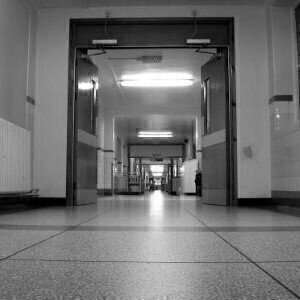News & Views
Testing Mars Capability Underground
Oct 18 2017
The North East of England played host to international scientists who gathered at the Cleveland Potash Boulby Mine to develop new technologies for future exploration of the Moon and Mars.
This fifth MINAR (Mine Analogue Research) event was held at the Science and Technology Facilities Council’s (STFC) funded Boulby Underground Laboratory, one of just a handful of facilities worldwide suitable for deep underground science projects.
Working over 1km beneath the surface of the Earth, the group of international scientists from across Europe, NASA and the SETI Institute in the United States, together with the Kalam Centre in India, along with an astronaut from the European Space Agency, tested a wide range of equipment, including new means of studying microbial life. The deep underground facility also offers an ideal environment for robotic and human explorers to better understand about the exploration challenges of other planets.
Professor Sean Paling, Director and Senior Scientist at the Laboratory said the support from Cleveland Potash as the mine operators is crucial. “It is a unique science and industry collaboration – and we couldn’t do the leading edge science we are focussing on in the lab without their support. Boulby has hosted the UK’s Dark Matter studies for a number of years, operating some of the most sensitive equipment in the world to try to detect what is believed to be the ‘missing’ material which makes up much of the mass of the universe but which does not emit light or energy.”
“In more recent times we have developed a range of other research programmes which can only be carried out in a facility such as Boulby, including MINAR, an initiative run by the UK Centre for Astrobiology to do science and test technologies for planetary exploration, he added.”
But the event was not just for scientists – schools have been given access to live web feeds, showing the scientists at work and also with commentary from ESA astronaut Matthias Maurer.
Professor Charles Cockell, from Edinburgh University, head of the UK Centre for Astrobiology added that the two weeks provided “a wonderful opportunity for scientists from many different parts of the world to come together to work in the mine and laboratories underground. We also want to use it as an opportunity to give as many people as possible an understanding of the challenges of planetary exploration and the technologies being developed.”
Digital Edition
Lab Asia 31.2 April 2024
April 2024
In This Edition Chromatography Articles - Approaches to troubleshooting an SPE method for the analysis of oligonucleotides (pt i) - High-precision liquid flow processes demand full fluidic c...
View all digital editions
Events
Apr 28 2024 Montreal, Quebec, Canada
May 05 2024 Seville, Spain
InformEx Zone at CPhl North America
May 07 2024 Pennsylvania, PA, USA
May 14 2024 Oklahoma City, OK, USA
May 15 2024 Birmingham, UK


















